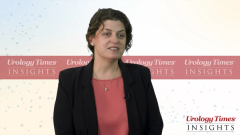
Opinion|Videos|January 14, 2025
Advancements in BCG-Unresponsive NMIBC and the Impact of Trial Results and Long-Term Follow-Up
Author(s)Max Kates, MD
Max Kates, MD, discusses how early complete response rates exceeding 50% at 3 months with newer therapies are encouraging, though long-term follow-up remains critical for evaluating durability of response and establishing real-world effectiveness compared with clinical trial outcomes.
Advertisement
Episodes in this series

- Data for newer therapies have shown that more than 50% of patients with BCG-unresponsive NMIBC experience a complete response after just 3 months of treatment. What are your thoughts on these findings?
- How do these clinical trial outcomes compare to what you see in your clinical practice when treating patients with newer therapies?
- Discuss the importance of long-term follow-up for patients receiving these newer treatments.
- What is your experience in terms of durability of response?
Newsletter
Stay current with the latest urology news and practice-changing insights — sign up now for the essential updates every urologist needs.
Advertisement
Latest CME
Advertisement
Advertisement
Trending on Urology Times
1
FDA approves sildenafil oral film for men with erectile dysfunction
2
The UroOnc Minute: Adjuvant Therapy in Renal Cell Carcinoma, with Brian Shuch, MD
3
Pearls & Perspectives: Modern Semen Testing and Male Fertility Care, with Thomas Masterson, MD
4
Head-to-head analysis shows OS benefit with apalutamide vs darolutamide in mCSPC
5




